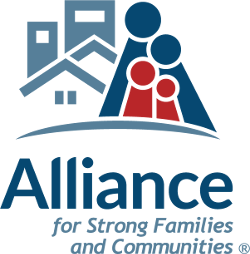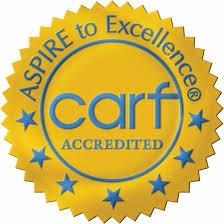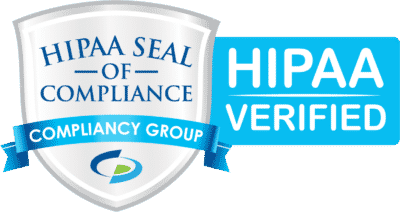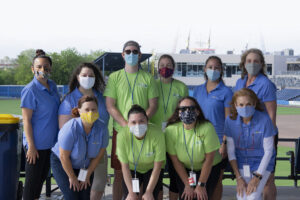| Introduction to the Foster Parenting Requirements
Virginia’s foster parenting requirements are more than a checklist—they represent a vital commitment to protecting children and creating stable homes where healing and growth can happen. Understanding these requirements helps prospective foster parents prepare for the process, avoid unexpected surprises, and enter this journey with confidence. From background checks to home safety measures, every rule exists for a reason: to keep children safe, ensure families are ready for the unique challenges of foster care, and uphold high standards of care across the state. Meeting these requirements isn’t about perfection; it’s about proving you have the resources, stability, and compassion to provide a supportive environment.

At The UpCenter, we emphasize that these foster parenting requirements are designed to set families up for success. Foster care can be a life-changing experience for both children and caregivers, and preparation is key. By completing the necessary steps—such as training, health screenings, and home studies—you’ll gain valuable knowledge and confidence to navigate the system effectively. Our team works alongside every applicant, offering guidance and resources so you understand not only what is required but why it matters. With the right support and a clear understanding of the process, families can open their hearts and homes to children in need, knowing they’ve met the highest standards of safety and care.
| Why Requirements Matter
Foster parenting requirements exist to protect children and support families throughout their journey. These standards help prevent unsafe situations, ensure foster parents have the skills they need, and build trust between families, agencies, and the court system. At The UpCenter, we believe these measures are not barriers—they’re tools that help families succeed. For example, training ensures parents know how to manage trauma-related behaviors, while home safety steps guarantee a child’s physical security. These guidelines ultimately make the fostering experience smoother and more rewarding for everyone involved.
Meeting these requirements also protects foster parents themselves. For instance, undergoing training and background checks means caregivers are better equipped to handle the complexities of foster care and less likely to encounter unexpected legal or safety issues. When families meet these standards, they create a nurturing environment that fosters healing and development for vulnerable children.
| Eligibility Basics
Age, Residency & Household
Applicants must be at least 25 years old, live in Virginia, and maintain a safe, stable household. All adults in the home must participate in the approval process, including background checks. Whether you are single, married, or part of a committed partnership, you are welcome to apply as long as you can meet the outlined foster parenting requirements.
Virginia law requires that every adult in the household undergo a thorough background screening. This includes fingerprinting and registry checks to ensure the safety of any child placed in the home. The UpCenter assists applicants in navigating these screenings and helps clarify any concerns applicants may have regarding past records or other factors.
Income & Financial Stability
There is no strict income threshold to become a foster parent, but families must demonstrate financial stability. This means showing that you can cover household expenses without relying solely on foster care stipends. The UpCenter will review documentation such as pay stubs or tax returns to confirm stability. While financial assistance is provided to help with the child’s needs, fostering should not be viewed as a source of income. This is one of the most important foster parenting requirements because financial stress can directly impact a child’s sense of security.

For example, a family earning a modest but steady income with manageable expenses is generally considered suitable. The goal is to ensure that children are placed in homes where their basic needs—food, clothing, healthcare, and education—can be consistently met without financial strain on the caregivers.
| Background and Health Screenings
Background Checks
All prospective foster parents undergo criminal background checks, fingerprinting, and checks against the child abuse and neglect registry. Driving records may also be reviewed, especially if you plan to transport children. These safeguards exist to protect children and ensure they are placed in safe, loving homes. Disqualification typically occurs for serious crimes like abuse or violent offenses, but minor past issues may be reviewed in context.
For example, an applicant with a minor, old offense might still be approved if sufficient time has passed and they can demonstrate rehabilitation. The UpCenter provides support and guidance during this screening process to clarify any questions applicants might have.
Health Certifications
Applicants must provide medical documentation confirming physical and mental fitness to care for children. This includes a health screening and tuberculosis test. At our organization, we understand that health requirements aren’t about perfection—they ensure caregivers have the stamina and emotional readiness to meet a child’s needs consistently. These foster parenting requirements reflect the importance of caregiver well-being.
Good physical health allows caregivers to keep up with children’s active lifestyles and meet any special medical needs. Mental and emotional health screening ensures parents are prepared to handle the stresses that come with foster parenting, including managing behavioral or emotional challenges.
| Home Study & Safety Standards
The Home Study Process
The home study involves interviews with household members, background research, and an in-home visit. Staff from The UpCenter will discuss your parenting style, family dynamics, and plans for supporting children. During the visit, they’ll check for safety and space, and offer guidance if something needs improvement. Think of it as a partnership—our goal is to help you succeed.
This step is thorough but supportive. The home study also assesses your network of support, such as friends, family, or community resources, which can be critical for foster parents in managing daily challenges.
Safety Requirements
Homes must meet specific standards: working smoke detectors, a separate bed for each child, secure storage for medications, and clear emergency exits. Fire extinguishers and evacuation plans are also required. These safety-focused foster parenting requirements may seem detailed, but they give children and caregivers peace of mind. Most families find the checklist manageable with a little preparation.
Examples include:
Smoke detectors in every bedroom and hallway
Carbon monoxide detectors near sleeping areas
Medication locked away out of children’s reach
Clear evacuation plan posted near exits and practiced regularly
No exposed wiring or hazards like unsecured rugs or blocked exits
The UpCenter can provide a home safety checklist before the visit to help you prepare.
| Training Requirements
Applicants complete about 40 hours of pre-service training, covering trauma-informed care, discipline techniques, and cultural awareness. Annual ongoing training (usually 10–12 hours) keeps caregivers updated on best practices. The UpCenter offers classes in-person and online, making training accessible and supportive. These educational foster parenting requirements prepare families for real-life scenarios like managing sibling placements or supporting reunification plans.
Training topics typically include:
Understanding trauma and attachment disorders
Positive discipline and behavior management
Communication with birth families and agencies
Navigating the child welfare system
Supporting education and medical needs
Many foster parents report that training helps them feel more confident and prepared for challenges they didn’t anticipate before becoming licensed.
| Documentation & Interviews
References, financial documents, and personal history are collected during licensing. Interviews help agencies learn about your motivation and support network. While meeting these foster parenting requirements can feel extensive, every step is designed to ensure stability for the child and confidence for the caregiver.
For example, agencies typically ask for:
Personal and professional references
Employment verification and income documents
Background on past caregiving or parenting experience
Interviews with the applicant and household members
| Post-Placement Support
Foster parenting doesn’t end at placement. The UpCenter offers ongoing support such as:
24/7 on-call help for emergencies
Counseling services for children and caregivers
Peer support groups and community events
Assistance coordinating school, medical, and therapy appointments
This continued support is vital for managing the complexities of foster care and ensuring positive outcomes for children.

| FAQ: Common Questions
No set income threshold exists, but you must demonstrate financial stability so fostering does not cause hardship to your household. This means providing proof of steady income and responsible management of finances, such as pay stubs, tax returns, or bank statements. We review this documentation carefully to confirm you can meet your household needs alongside the additional responsibilities of fostering.
No, homeownership is not required. You can rent your home as long as it meets safety and space requirements detailed in the foster parenting requirements. Renters must also provide landlord permission for a foster child placement. The UpCenter helps renters understand and meet these standards, ensuring your home provides a secure, welcoming environment.
The average approval process ranges from 4 to 6 months, depending on how quickly training is completed, paperwork submitted, and home preparations made. Delays can happen but staying proactive and maintaining close communication with our organization’s licensing staff helps keep the process moving smoothly.
All adults in the household must undergo fingerprint-based criminal background checks, searches in child protective services registries, and driving record reviews if children will be transported. These checks are thorough to safeguard children, and The UpCenter provides guidance for applicants throughout this process.
A safe home meets standards including functioning smoke and carbon monoxide detectors in key areas, secure storage of medications and hazardous materials, a separate bed for each child, clear emergency exit routes, and absence of hazards such as exposed wiring or blocked pathways. We provide a checklist so you can prepare ahead of the home inspection.
About 40 hours of pre-service training is mandatory, covering essential topics like trauma-informed care and discipline strategies. After licensure, you must complete ongoing annual training (typically 10–12 hours) to stay updated on new practices and regulations. We offer flexible training formats including online and in-person classes.
Yes, many foster parents work full-time jobs. However, your home study will include discussions about your childcare arrangements and transportation plans to ensure the child’s needs are met consistently. The UpCenter helps you strategize how to balance work and fostering responsibilities.
In some cases, yes. If reunification with the birth family is not possible and parental rights are terminated, foster parents may be considered for adoption. However, the primary goal of foster care is often reunification, and adoption is a decision made through the court system with input from child welfare professionals.
The UpCenter offers comprehensive support including 24/7 on-call assistance for crises, counseling services for foster children and parents, peer support groups, and help coordinating education and medical appointments. This network ensures families are not alone in managing challenges that arise post-placement.
Placement capacity depends on the size of your home and the needs of the children involved. The organization assesses factors like available bedrooms and the demands of each child to determine a safe, manageable number. Balancing the needs of children and caregivers is key to a successful foster environment.
Each case is evaluated individually. Minor offenses from many years ago might not prevent approval if rehabilitation is demonstrated. However, recent or serious offenses related to violence, abuse, or neglect typically disqualify applicants. We can help you understand how your background may affect your application.
You will receive detailed feedback outlining necessary changes. Most families successfully address issues such as installing detectors, securing hazardous materials, or improving emergency plans within the allotted correction period. A follow-up inspection is then conducted.
Yes. Continuing education is required to maintain licensure. Annual training updates caregivers on evolving best practices, policy changes, and new approaches to trauma-informed care. The UpCenter provides convenient training options to help you fulfill this requirement.
| Conclusion
Meeting foster parenting requirements in Virginia ensures children have safe, loving homes and families feel prepared for the journey ahead. While the process may seem detailed, each step exists to support both child and caregiver. Our organization is here to guide you from start to finish with resources, training, and ongoing support.
Becoming a foster parent is a profound commitment that changes lives—not just for the children placed in your care, but for your entire family. It requires patience, resilience, and a willingness to learn and grow alongside the children you welcome. When you meet the foster parenting requirements, you demonstrate that readiness and create a stable foundation for these children to thrive.
Through every stage—from application to ongoing support—The UpCenter provides expert guidance, encouragement, and community connection. You’re never alone on this journey. The rewards of fostering are immeasurable, offering children safety, love, and hope for a brighter future.
If you’re ready to make a meaningful difference, start by contacting us today. Together, we’ll walk you through the foster parenting requirements, prepare you for success, and open the door to transforming lives—one child, one family at a time.














